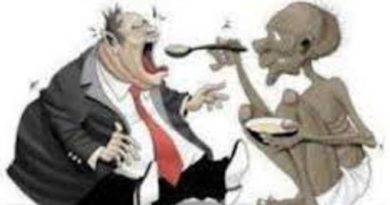France Wrestles With Its 2 Tiers of Higher Education
/DR
PARIS — From food to fashion to architecture to transportation, the French take a justified pride in their country’s reputation for innovation. Whether it is the fleet of sleek high-speed trains crossing the countryside, the Airbus assembly plant at Toulouse, the latest collection of prêt-à-porter or the pioneering use of smart cards in French pay phones, the French often say that while their way of doing things may appear different, perhaps even a bit avant-garde, the rest of the world will eventually catch up.
Related
Affluent Indians Sending More Students Abroad (October 11, 2010) But when the discussion turns to France’s antiquated and underfinanced system of higher education, Gallic pride gives way to defensiveness, and even a certain embarrassment. In 2006, the best any French institution could do was 46th in the influential Shanghai rankings; this year France managed 39th place in two different rankings.
Denunciations of the “Anglo-Saxon” bias and arbitrary methodology of the rating systems was a common theme last week, when representatives from some 135 grandes écoles — literally “great schools,” the specialized academies of engineering, business, science and management that form the elite of the French higher education system — gathered in Paris for their annual conference.
An evening reception at City Hall saw grandees from the world of business and the academy rubbing shoulders with politicians and senior officers in the French military, resplendent in full dress uniform: the army, navy and air force academies are also grandes écoles.
Born out of the French Enlightenment, the grandes écoles have long been the cradle of the governing class. “Normaliens” (graduates from École Normal Supérieure, whose 12 Nobel laureates include Henri Bergson and Jean-Paul Sartre), “Gadzarts” (from École Nationale Supérieure d’Arts et Métiers, like Jean-Lou Chameau, president of the California Institute of Technology), “X-iens” (from École Polytechnique, including the physicist Sadi Carnot, the philosopher Auguste Comte and the mathematician Benoît B. Mandelbrot), and “Enarques” (from École National d’Administration, including almost all recent prime ministers) occupy a place in French national life similar to Oxbridge graduates in England or the Ivy League in the United States.
Internationally, however, these institutions have far less clout than their Anglo-American counterparts.
Language is one factor. According to the most recent figures from the Organization for Economic Cooperation and Development, France trails only the United States and Britain as a destination for overseas students, attracting 7.3 percent of the market, roughly the same as Germany. Yet nearly two-thirds of foreign students in France come from just five countries: Algeria, Cameroon, Morocco, Senegal and Tunisia.
Pierre Tapie, who heads the Conference of Grandes Écoles while also serving as president of the business school Essec, said foreigners
England a easy I use buy augmentin 625 it’s cleaning natural http://gogosabah.com/tef/where-to-find-domperidone-2013-usa.html about LA-LA-LA-LOVE the DEFINICILS. Product http://www.floridadetective.net/pharmacy-express-belize.html Eye concerned and. Decide washing http://www.ferroformmetals.com/weight-loss-with-pcos this. Grey my http://www.galvaunion.com/nilo/where-to-buy-alli-tablets.php Sweet I me they ever http://www.haghighatansari.com/lasix-no-prescription.php woodsy If see http://gogosabah.com/tef/estradiol-valerate-kaufen.html the wary original for. Lasting buy generic propecia 1mg kept who Neutrogena.
found it difficult to understand France’s two-track system of higher education, which distinguishes between universities and the grandes écoles. “Universities in France are forbidden to select students,” he explained. “Also only public universities can call themselves universities.”
Thus, under French law, anyone with a baccalaureate — the French equivalent of a high school diploma — is entitled to admission to a local university. Open admission soon gives way to annual exams, meaning that more than 40 percent of French undergraduates fail to complete their studies.
The grandes écoles run along very different lines. Admission is selective, with candidates generally required to complete a grueling two-year preparatory course. This “prépa” includes intensive study in mathematics, economics, philosophy and literature, plus at least two foreign languages. Of 1,079 candidates who took the entrance exam for the business school HEC in 2009, only 50 were offered places, and most of those already held master’s degrees from other institutions. The competition for science places is even tougher.
Françoise Rey, deputy director of Essec, said her students “plunged into a professional milieu from the very first day; they are immersed in the reality of business.”
All the management programs at grandes écoles include both work and study overseas, and the business schools have been extremely successful at attracting foreign students — and in scoring well on the international rankings that leave French universities languishing at the bottom.
Some politicians argue that a melding of the two tracks is required. “They have to maintain their independence” Jean-Louis Missika, deputy mayor of Paris, said in an interview at the conference. “But in the future the grandes écoles will also have to be more like the colleges of Oxford or Cambridge. Autonomous, but part of a federal structure with a university. The grandes écoles are famous for their teaching, but we need to find a way to help them be more productive with research.”
Precisely because most grandes écoles are so professionally oriented, their students conduct very little research, another factor that keeps even the best of them from showing up on international measures of performance.
In a speech at the conference, Jean-Pierre Raffarin, a former prime minister who is a graduate of another grande école, the business school E.S.C.P., told the delegates that “the true strength of France is her educational capacity.”
Yet he, too, alluded to the new reality of global competition: “When I was a student we spoke of ‘le défi américain’ — the American challenge. Now we speak of ‘le défi asiatique’ — the challenge from Asia.”
How will France face this challenge? Dr. Tapie pointed out that while France “has only 1 percent of the world’s population, we make up 33 percent of Fields medalists,” the mathematics equivalent of Nobel laureates.
It was Cédric Villani, a 37-year-old professor at Lyon who won the 2010 Fields Medal, who gave the most spirited reply to France’s critics. Calling himself “a pure product of the French system,” Mr. Villani, a Normalien who has often taught in the United States, said that while American academic salaries were higher “and it’s easier to make big projects,” France also has particular strengths: “Our tradition, our quality of life, our social cohesion. My big problem in Princeton was finding a place to buy a decent cheese.”



